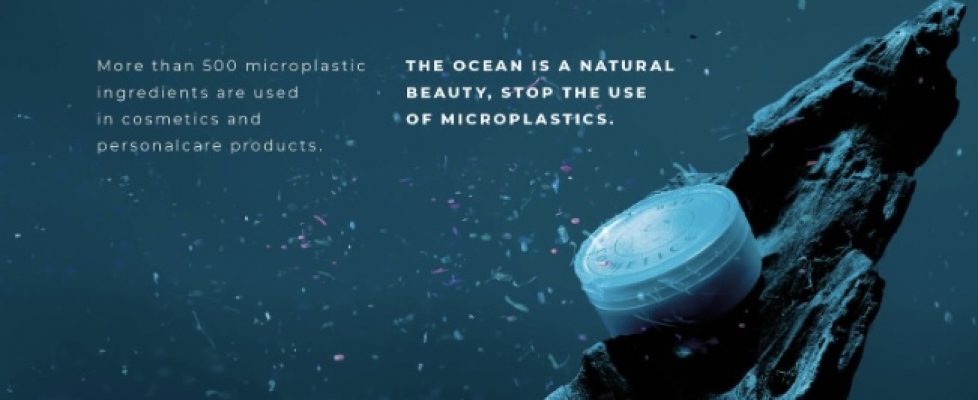Planet
The cosmetics industry has been drastically failing our planet for decades. The use of chemicals are polluting water systems and harming aquatic life (Khalid & Abdollahi, 2021). 80% of countries still allow cosmetics to be tested on animals, subjecting 100 million to experience suffering and death (Kitenest, 2022). Tonnes of product packaging is sent to landfill every day, a staggering 70% of the industry’s waste comes from packaging (Borunda, 2019). Products such as wet wipes, cotton pads and face masks are only used once before they are binned and left to pollute the planet. Forests are being wiped out to make room for palm oil plantations. Perfume, hair spray and deodorants are said to be polluting the environment as much as car emissions. And transport of products across the globe are contributing to carbon emissions being at an all-time high.
The ways in which the industry is destroying the planet are truly catastrophic.
The Ellen MacArthur Foundation helps businesses to create better solutions to reduce their damage to the planet. They promote the idea of a circular economy; this system stops materials becoming waste by recirculating through processes such as recycling and refurbishment amongst others. It also regenerates nature by reducing the consumption of finite resources and instead using biodegradable materials that will be absorbed back into the earth (Ellen MacArthur Foundation, 2023). Companies such as Unilever and L’Oreal, have already signed on to the Ellen MacArthur Foundation’s ‘New Plastics Economy’ goals.

Sustainable development means advancing to meet our current needs without hindering the ability of future generations in meeting their needs (Meredith, 2023). Many companies are developing in a sustainable way by using solar and wind power, manufacturing with lower temperatures, using less water and recycling energy. Strategies such as these, allow for the regeneration of finite resources, reduce emissions and carbon footprint (Bom, et al., 2020). For example, L’Oreal aims to make all of their packaging reusable, refillable, or compostable by 2025 (Borunda, 2019). Single-use plastic regulations may also be implemented in the near future (Howard, et al., 2019).
‘Life below water’ is goal 14 of the sustainable development goals set by the United Nations, it is to ‘Conserve and sustainably use the oceans, seas and marine resources for sustainable development’ (United Nations, 2015). Single use products and plastic packaging are detrimental to the health of creatures below water. Oxybenzone is a chemical used in sun cream and has been found to be contributing to the damage of coral reefs. BHT, sodium Laureth sulfate, and BHAs have also shown evidence in causing changes to the biochemistry of aquatic life (Borunda, 2019). Research into alternative ingredients and measures to protect life below water need to happen before it is too late.

Works Cited
Bom, S., Ribeiro, H. M. & Marto, J., 2020. Embracing Sustainability: Important Practices and Impact in Cosmetics. [Online]
Available at: https://www.cosmeticsandtoiletries.com/research/methods-tools/article/21835698/embracing-sustainability-important-practices-and-impact-in-cosmetics
[Accessed 7 October 2023].
Borunda, A., 2019. The beauty industry generates a lot of plastic waste. Can it change?. [Online]
Available at: https://www.nationalgeographic.com/environment/article/beauty-personal-care-industry-plastic
[Accessed 7 October 2023].
Ellen MacArthur Foundation, 2023. Circular Economy introduction. [Online]
Available at: https://ellenmacarthurfoundation.org/topics/circular-economy-introduction/overview
[Accessed 7 October 2023].
Howard, B. C., Gibbens, S., Zachos, E. & Parker, L., 2019. A running list of action on plastic pollution. [Online]
Available at: https://www.nationalgeographic.com/environment/article/ocean-plastic-pollution-solutions
[Accessed 7 October 2023].
Khalid, M. & Abdollahi, M., 2021. Environmental Distribution of Personal Care Products and Their Effects on Human Health. [Online]
Available at: https://www.ncbi.nlm.nih.gov/pmc/articles/PMC8170769/
[Accessed 7 October 2023].
Kitenest, 2022. How do cosmetics impact the environment?. [Online]
Available at: https://kitenest.co.uk/blogs/news/how-do-cosmetics-impact-the-environment
[Accessed 7 October 2023].
Meredith, D. E., 2023. Sustainability. [Online]
Available at: https://www.ctpa.org.uk/sustainable-cosmetics
[Accessed 7 October 2023].
The Humane Society of the United States, 2023. Cosmetics animal testing FAQ. [Online]
Available at: https://www.humanesociety.org/resources/cosmetics-animal-testing-faq
[Accessed 7 October 2023].
United Nations, 2015. The 17 Goals. [Online]
Available at: https://sdgs.un.org/goals
[Accessed 7 October 2023].
